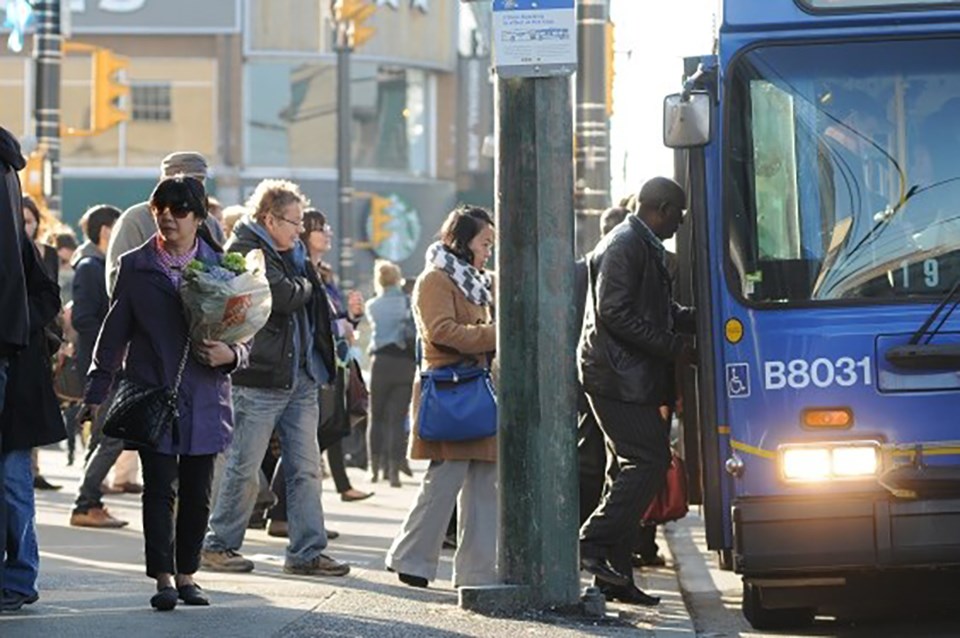Metro Â鶹´«Ã½Ó³»mayors, again, got on their proverbial stumps amid projections four in 10 major bus routes will be “severely overcrowded” by 2025.
Speaking in downtown Vancouver, Port Coquitlam Mayor and Mayors’ Council chair Brad West said housing projects are now at stake, if funding doesn’t arrive for transit expansion.
“The region’s population is growing at a record pace while our housing affordability crisis deepens,” said West in a statement to media.
“As mayors, we are concerned that any delays in expanding transit service will make it very difficult for city councils and builders to expand housing in our communities as quickly as is needed. The window for the provincial and federal government to take action is getting very small,” said West, who spoke in February and May about the need for more funding.
Then, West said the federal government was essentially putting the cart before the horse by increasing immigration targets without likewise contributions to transit.
The council oversees TransLink’s 10-year plan to 2032 called Access for Everyone, which requires $21 billion of investments. The plan assumed annual immigration of 300,000, not 500,000.
While the federal government has announced a $3-billion permanent public transportation fund, it is only scheduled to start dispensing money in 2026; TransLink needs the money by June 2024, said council vice-chair Mike Hurley, Burnaby’s mayor.
“Time is running out. We’re asking the federal and provincial governments to commit to funding their share of the Access for Everyone plan, starting in 2024.”
TransLink says it’s now expecting 50,000 new residents to the region as opposed to 30,000.
The council says the funding is needed in order to serve new housing projects through the region of about 2.6 million people. (TransLink would be entitled to about seven per cent of the funding, or about $205 million, were it based on the region’s share of the national population.)
TransLink reports its ridership continues to rebound from the pandemic, although it is not fully at 2019 levels.
In 2022, there were 325.9 million total boardings, 45.8 per cent higher compared to 2021, with transit revenue rising to $552 million. Ridership, however, still remains about 20 per cent below pre-pandemic levels.
TransLink received $479 million from the provincial government in March to maintain services and capital projects over the next three years in the face of the continued revenue shortage. This was in addition to $644 million it received in 2020 and $176 million in 2022, from senior governments.
What is Access for Everyone?
TransLink says the Access for Everyone plan will:
- more than double bus service over 2022 levels;
- add up to nine new traffic-separated Bus Rapid Transit lines;
- make improvements to the region's major road network;
- increase HandyDART service by 60 per cent and provide 24-hour service;
- begin planning for a rapid transit solution to the North Shore (Metrotown to Park Royal);
- build the Burnaby Mountain Gondola to Simon Fraser University;
- extend SkyTrain to the University of British Columbia;
- increase SeaBus service start and end times to match SkyTrain’s service hours; and,
- expand cycling and pedestrian infrastructure.


